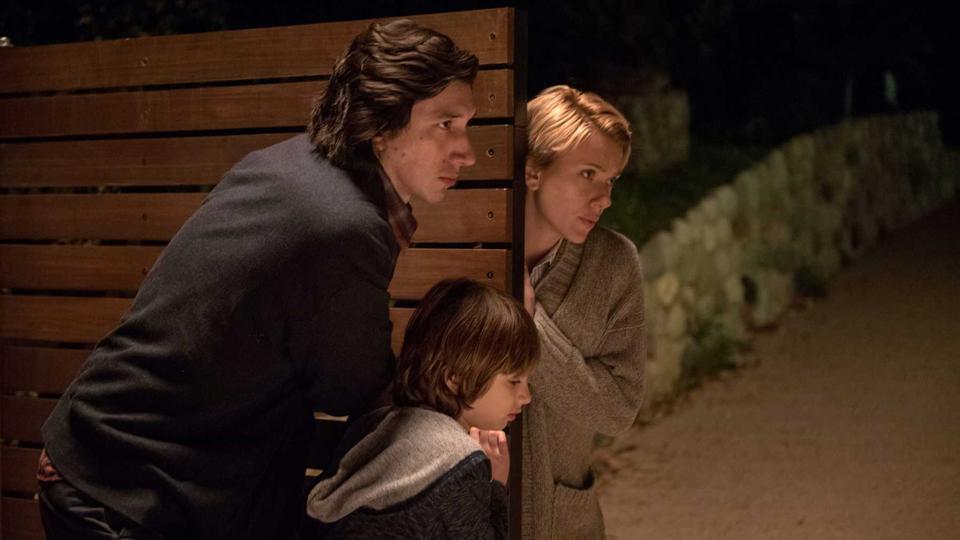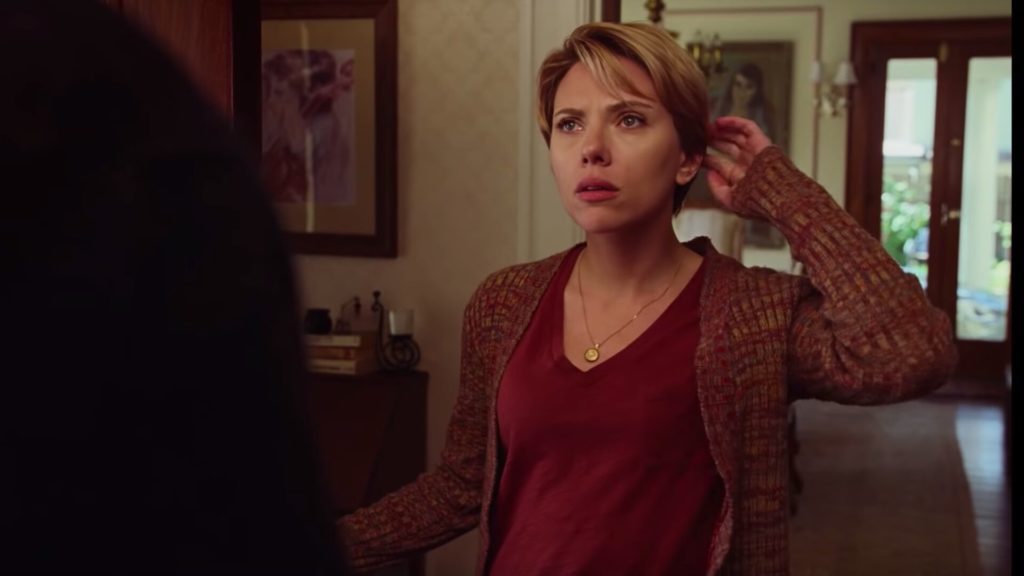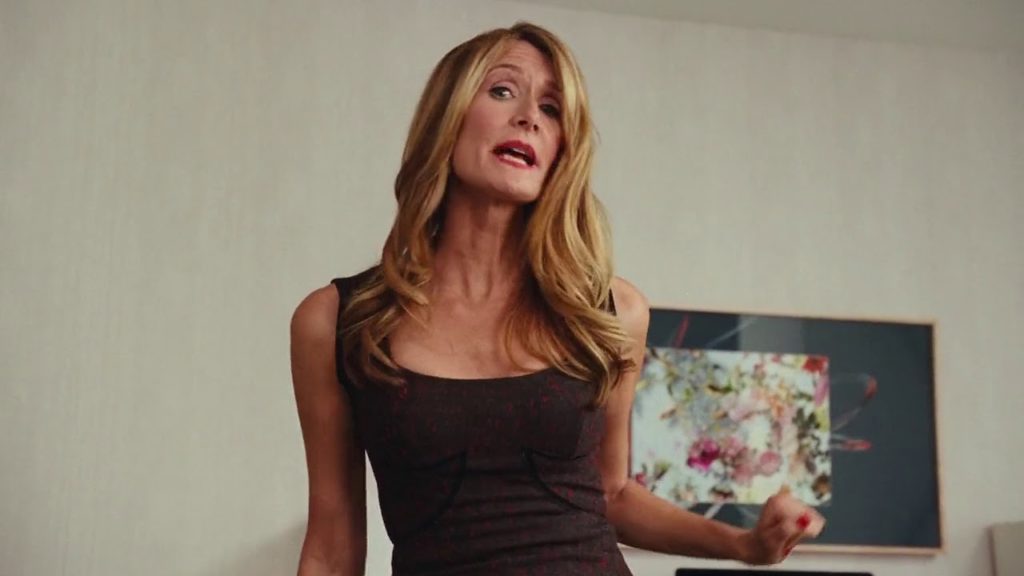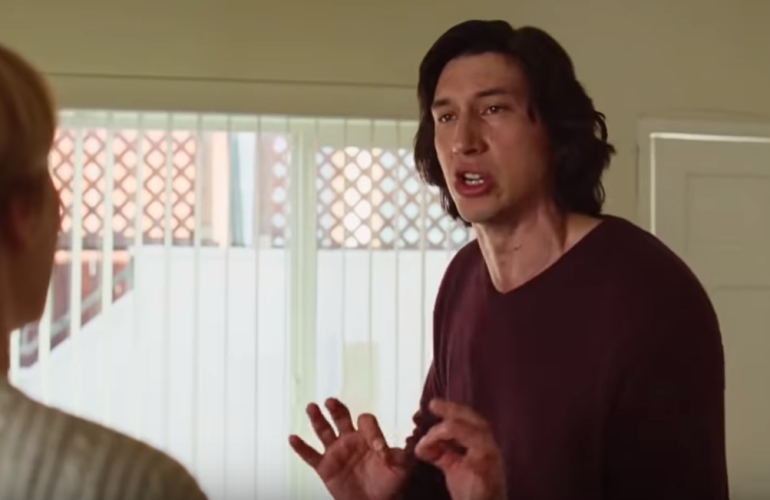
Marriage Story opens with a pair of sweet, complementary monologues. First, Charlie (Adam Driver) tells us what he loves about his wife, Nicole (Scarlett Johansson), who then follows with a parallel recitation of what she admires about her husband. Both ruminations are full of affectionate detail and cute peccadilloes: how she leaves cabinets open, how he devours food, how they both play Monopoly like cutthroats. They’re the kind of quotidian observations that can only be amassed through the act of sharing a life, and they’re redolent with warmth and appreciation. Which makes it all the more shocking when these adoring speeches are revealed to be exercises suggested by a mediator, therapeutic assignments designed to mitigate the inevitable pain of their looming divorce.
Well, maybe not shocking, given who’s behind the camera. Even if you have no knowledge of the plot of Marriage Story—which chronicles the life cycle of Nicole and Charlie’s separation over 137 excruciating, beautiful minutes— so long as you’re aware that it was written and directed by Noah Baumbach, you’ll hardly be surprised by this sudden swerve into gloom. America’s poet laureate of marital and familial discord, Baumbach has devoted his career to exploring relationships—not just between couples, but also between parents and children, siblings, and friends—with a tricky combination of brutal honesty and wry comedy. Marriage Story is no exception; this is a film of lacerating insight and raw emotion. But it is also perhaps his most tender, least showy work (though Frances Ha may want a word). As ever, Baumbach refuses to sentimentalize his characters, but here he regards them with unprecedented empathy. In examining how two people break apart, he creates a sensation of togetherness.
The craft helps. As a stylist, Baumbach can be messy and agitated; his last picture, The Meyerowitz Stories, was full of abrupt cuts and haphazard title cards, deliberately keeping viewers off balance. Initially, Marriage Story looks rather flat (a possible consequence of my seeing it on the small screen), but it soon proves to feature some of the most graceful passages of its director’s career. The editing, by Jennifer Lame (Hereditary, Manchester by the Sea), is patient and precise; the cinematography, by Robbie Ryan (The Favourite, American Honey), is poised and nimble. A shot of Nicole and Charlie jointly closing a gate, each on opposite sides, is startling in its metaphorical audacity, while a sequence where Nicole reminisces about how their union flowered and faded is captured in a devastating unbroken take, the camera slowly pushing in on Johansson’s shattered face as she bares her soul to us.

And to her lawyer. At its core, Marriage Story is a heartfelt study of two people slowly slipping away from one another, but it’s also a surprisingly detailed legal procedural, with an emphasis on the importance of location. The movie opens in New York, where Nicole and Charlie have just finished collaborating on a new play; he’s an acclaimed and fastidious director, she his star actress and presumed muse. After mediation fails (“I’m gonna go if you two are just gonna sit around and suck each other’s dicks”), Nicole chooses to move with their eight-year-old son, Henry (Azhy Robertson), to Los Angeles, where she’s landed the lead role in a TV pilot. At first, she and Charlie promise to resolve things amicably and not hire any attorneys, but after a coworker whispers words of warning into her ear, Nicole succumbs and retains the services of Nora (Laura Dern), at which point things start sliding from reasonably cordial to downright nasty.
Well, partly. One of the most potent and dispiriting insights of Marriage Story is its understanding of how divorce pits spouses against each other—how a process that should ideally be collaborative instead becomes literally adversarial. Nicole and Charlie aren’t bad people, and they still care for one another, but in this zero-sum game—where the granting of custody to one parent results in the denial to the other, where assets must be divided rather than shared—they’re postured as natural foes. Similarly, their lawyers—Charlie’s representation fluctuates from Bert (Alan Alda), a laid-back geriatric who takes a holistic approach and wants everyone to be happy, to Jay (Ray Liotta), an antagonistic shark who has an office pillow that reads, “Eat, Drink, and Remarry”—are hard-wired to secure the most favorable deal for their clients, opposing side be damned. This means that innocuous incidents—Nicole’s stumble on the stairs after drinking a glass of wine; Charlie’s offhand remark that the grant he won is due as much to her as to him—become weaponized on the field of legal battle, attacks mounted to poke holes in the enemy’s defenses.
It’s awful. Yet at the same time, Marriage Story treats the concept of separation with both humor and humanity. The scene where Nicole recruits her sister (Merritt Wever) to serve Charlie with papers is a marvel of awkward farce, recalling the whimsy of Baumbach’s Mistress America. And the director’s dialogue, which in the past has verged on overwritten, is smart and juicy but never forced. He also quietly loads the film with interesting supporting characters—an elderly actor (Wallace Shawn) who’s constantly rambling about his past work, a stage manager (Brooke Bloom) who’s torn between guilt and desire, a supportive mother (Julie Hagerty, yes that Julie Hagerty) who sees the good in everyone—and their collective sense of personality enhances the movie’s fine-grained texture. The most memorable of these players is Nora, whom Dern imbues with steely pragmatism; the scene where she unloads on the gender biases inherent in the domestic legal system is a tour de force of righteous speechifying.

The obvious stars of Marriage Story, however, are its feuding spouses. Nicole is the more tentative of the pair, and Johansson plays the part with exquisite indecision and sadness, as though she’s trapped in a whirlpool of grief. (That Nicole is incapable of crying on stage must be a meta joke, given how frequently and persuasively Johansson weeps on screen here.) Charlie is more abrasive, but while Driver refuses to sand down the character’s rough edges, he also consistently foregrounds his sense of loss; his most extraordinary moment comes when he warbles a Stephen Sondheim song to a roomful of pitying colleagues, as though he’s reclaiming himself by disappearing into art. (This is the actor’s fourth team-up with Baumbach, following Frances Ha, While We’re Young, and The Meyerowitz Stories.)
Fittingly, Nicole and Charlie spend a good deal of time apart in the film, though they’re rarely alone; instead, they’re caring for Henry, who remains something of a blank slate despite his “Danny from The Shining” haircut. This sharply distinguishes Marriage Story from The Squid and the Whale, which considered the fallout of an acrimonious divorce from the perspective of Jesse Eisenberg’s emotionally flailing teenager. Henry’s archetypal makeup—he’s occasionally sullen but mostly eager to please, and it’s clear that he doesn’t fully understand what’s happening—is arguably a missed opportunity, but it also makes a certain sense; he’s another item, a piece of property to be squabbled over. Nicole and Charlie are both good parents who love their son deeply, but do they care more about what’s best for him, or for them?

The various parenting scenes build on that question without really answering it, which is hardly a problem. That’s because the strongest sequences in Marriage Story—the moments where it transcends its new-age Kramer vs. Kramer premise and splinters even the hardiest viewer’s fortifications to pieces—come when Nicole and Charlie share the screen. These tête-à-têtes, which Baumbach and his actors depict in wrenching detail, allow us to perceive the destruction of their relationship as a long, persistent slide from respect into antipathy. Early on, the mood is polite but faltering, as though they’re still learning how to navigate the terrain of leaving each other. Gradually, it grows more hostile, with passive-aggressive comments turning into straight-out reprimands. Things culminate in the movie’s pièce de résistance: a vicious, no-holds-barred fight in Charlie’s apartment, where savage verbal blows are exchanged, and both feelings and walls are shredded. It recalls the epic climax of Before Midnight—spiteful, jagged, unspeakably cruel.
Again, it’s awful. But it’s telling that this brutal scene concludes not with rage but with compassion. Charlie, having just hurled unimaginably dreadful words toward his wife, collapses to the floor, sobbing in shame. Nicole, still freshly wounded and wounding, crosses the room to comfort him, gently cradling his head—a helpless gesture that is simultaneously small and immense.
And it is this quality of grace that proves to be Marriage Story’s legacy. It’s a movie of unvarnished honesty, but while it doesn’t pull any punches, neither does it punish you. Baumbach is too clear-eyed to provide viewers with a happy ending, but in telling the tale of Nicole and Charlie’s dissolution so intimately, he provides us with his own sort of gift. Their marriage may be over, but their love was not in vain.
Grade: A-
Jeremy Beck is the editor-in-chief of MovieManifesto. He watches more movies and television than he probably should.
